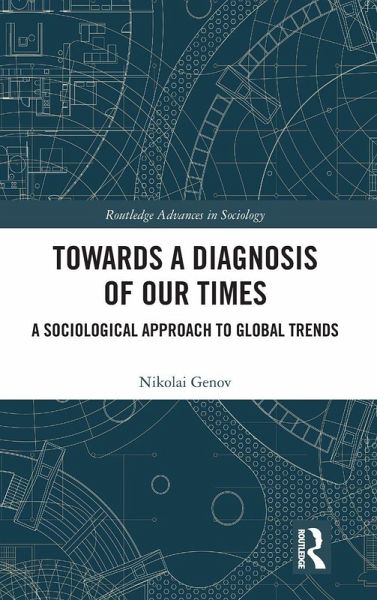
Towards a Diagnosis of Our Times
A Sociological Approach to Global Trends
Versandkostenfrei!
Erscheint vorauss. 30. September 2025
165,99 €
inkl. MwSt.
Weitere Ausgaben:

PAYBACK Punkte
83 °P sammeln!
This monograph offers a critical diagnosis of the current epoch marked by globalization, de-globalization and re-globalization. Arguing that the concept of society gives way to that of globalization as an explanatory core, the author shows how constructivist ideas open the way to four new conceptualizations of global trends: upgrading the rationality of organizations, individualization, spread of instrumental activism, and homogenization of culture (RISC). Each trend is presented by two explanatory models. The trend of upgrading rationality of organizations is exemplified by analyses of the vo...
This monograph offers a critical diagnosis of the current epoch marked by globalization, de-globalization and re-globalization. Arguing that the concept of society gives way to that of globalization as an explanatory core, the author shows how constructivist ideas open the way to four new conceptualizations of global trends: upgrading the rationality of organizations, individualization, spread of instrumental activism, and homogenization of culture (RISC). Each trend is presented by two explanatory models. The trend of upgrading rationality of organizations is exemplified by analyses of the volatile rationality of industrial organizations and the tensions of regional integration. Individualization is dealt with by comparing the development and impact of leaders in Asia and the individualization in the present-day war. Commercialization, together with consumerism, is analyzed as a component of the global trend of instrumental activism. The homogenization of culture is dealt with through discussions on the dynamic relations of values and norms and the controversial development of social science knowledge. The creative approach to global processes is finalized in a discussion on tensions and conflicts in each trend and in their interplay. As such, it develops a new analytical framework while identifying action fields and activities, which reproduce stability and change in contemporary global society. The intellectually refreshing, critical, and constructive ideas of this volume will attract researchers, lecturers, and upper-level students with interests in sociological theory, globalization, the sociology of culture, and the challenges facing contemporary civilization more broadly.













